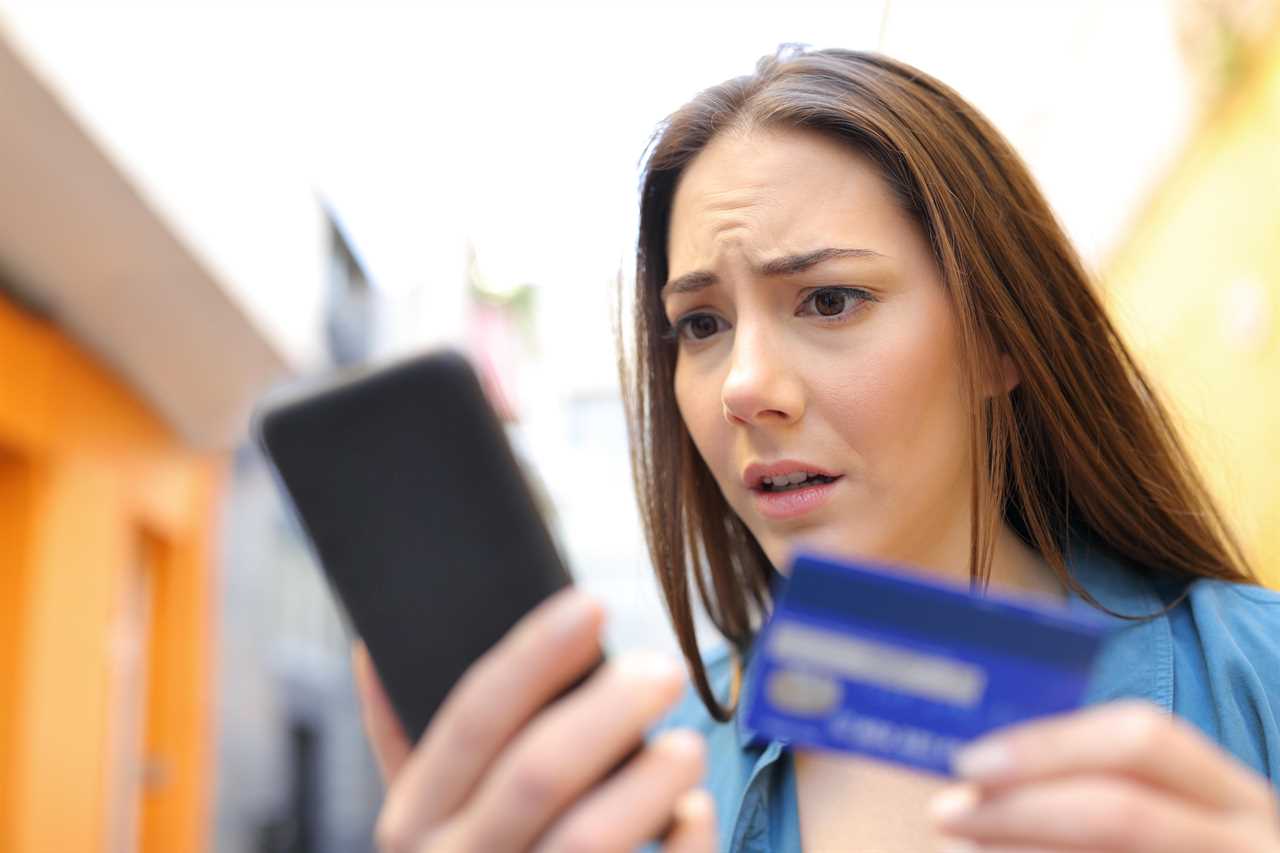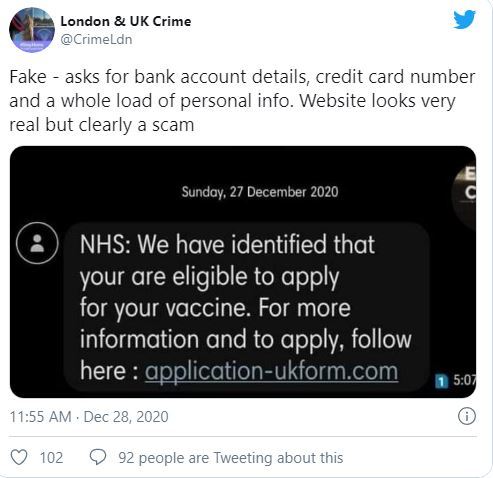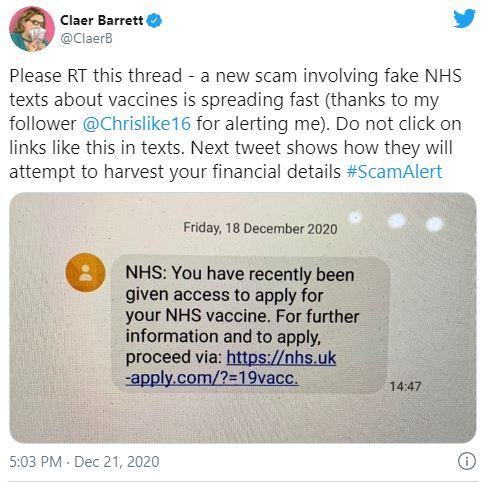VULNERABLE communities are on high alert after it was revealed a cruel coronavirus phone scam is being targeted to steal their money.
Fraudsters are taking advantage of the NHS Covid-19 vaccine rollout by sending convincing text messages and successfully scamming financial information.

Elderly and anxious residents have received text messages claiming to be from the NHS, which say they are eligible to apply to receive the vaccine.
Included in the message is a hyperlink to a fake – although very convincing – application form.
Those who click through to the form are then asked to fill the blanks with their personal information – including a credit card number.
Other text messages steal money from people by getting them to text back – with charges that cost a fortune.
Clued-up recipients have taken to social media to share screenshots of the messages, urging others to keep their wits about them as the scam appears to spread further.
NHS trusts and GPs surgeries across the country have also issued warnings about the scam, issuing advice on how to tell the difference between the scam texts and the genuine ones from GP practices that are beginning to offer the vaccines to the elderly.


Sadly, this isn’t the first instance of a con artist taking advantage of the coronavirus pandemic.
In a recorded phone message, elderly residents in the New Ferry area of Merseyside were being prompted to book non-existent Covid-19 “vaccine appointments” before Christmas.
Many in their 90s received phone calls to say they would be having their Covid-19 vaccinations at home and to expect a visit at a certain time and date.
Like the text scam, they were then asked to provide personal details other than their name to make a payment.
Councils across the country were forced to warn vulnerable residents that the NHS does not charge for the vaccine and any calls such as this should be treated as a scam.
Since the start of the pandemic, scammers have been taking advantage of the vulnerable community – who are already at greater risk of becoming ill.
However with many forced to shield alone for months on end, they sadly became an easy target.
In the early months of the year, documents containing legitimate-looking information on the coronavirus were riddled with malware and circulated over email.
As the virus progressed, the government’s test and trace program also became a hook for criminals to use for tricking people out of their money.
Fake PPE and Covid-19 test kits have also been peddled, with scammers also trying to con the government’s furlough scheme and relief for businesses.
The Local Government Association (LGA) said some councils have recorded a 40% increase in reported scams since the start of the pandemic.
An LGA spokesman warned that people need to be cautious.
“If something doesn’t seem right or sounds too good to be true, don’t hesitate to end a phone call, bin a letter, delete an email or shut the door.”
Peter Hazlewood, group financial crime risk director at Aviva, said of the dangerous trend: “Fraudsters are exploiting the pandemic to take advantage of people when they are at their most vulnerable.”
“They are using coronavirus as a pretext to lure potential victims.”
“The scams range from attempts to sell people unsuitable insurance to, at worst, stealing their entire retirement savings.”
As well as the potential for financial ruin, the scams are also having a detrimental effect on people’s wellbeing, said Gareth Shaw, head of money at Which?.
Mr Shaw explained: “The coronavirus pandemic has created the ideal environment for fraudsters to prey on people’s fears and vulnerabilities during this period of financial uncertainty.”
“Everyone should be wary of any unsolicited emails, texts or calls offering insurance, pension or investment products.”
“Make sure your personal devices are supported by the latest security updates and antivirus software to minimise threats.”
Up to four million more doses of the vaccine are expected by the end of the month.
The NHS is currently offering the Covid-19 vaccine free to people most at risk from coronavirus.
Any correspondence claiming otherwise should be treated as a scam.






